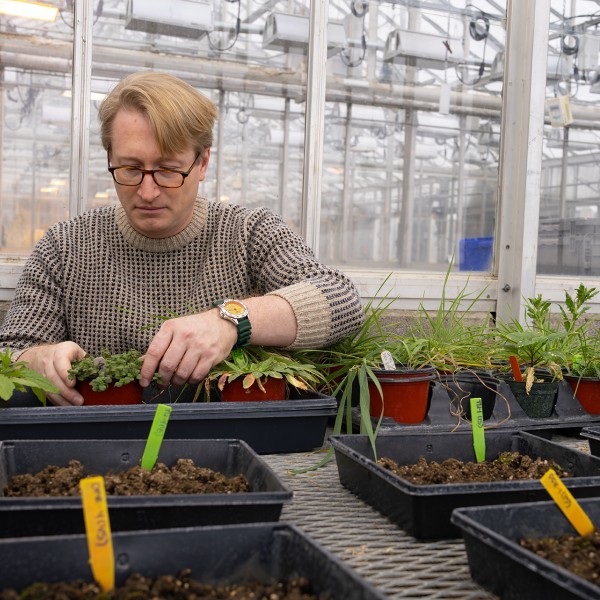Academic focus: My academic focus is in understanding how cells protect the integrity of their genome. This includes how chromosomes are repaired during DNA damage events and how they are even maintained during normal cell growth.
Research summary: Research in the Crickard Laboratory focuses on using single molecule, biochemical and molecular genetic approaches to answer challenging questions in the area of DNA repair and chromosome maintenance. Our work seeks to understand how cells protect genomic integrity and prevent the development of cancer.
What are your current outreach/extension projects?
I have yet to develop and outreach or extension project for my group but would like to.
What brought you to Cornell CALS?
Amazing colleagues and amazing scenery.
What do you think is important for people to understand about your field?
The homepage of my lab website says, “We use lasers and a microscope to look at cool biology!” But it’s also so much more than just cool biology. These tools give us the power to visualize things like protein and protein complexes as they function on DNA in real time.
DNA is really the blueprint for what makes us who we are, and understanding how proteins function to protect that blueprint is essential for developing new therapeutic strategies for treatment of human cancers.
What’s the most interesting thing you’ve discovered about Ithaca so far?
The large number of waterfalls.
If you had unlimited grant funding, what major problem in your field would you want to solve?
Cancer.
Learn more about Brooks' research on The Crickard Lab website.





